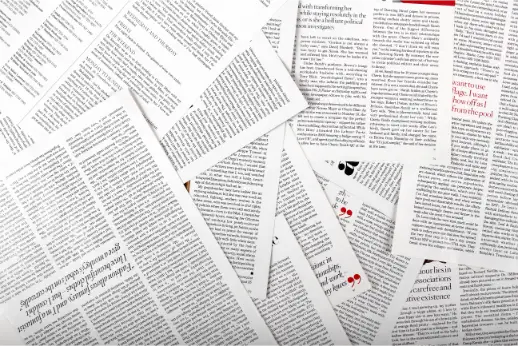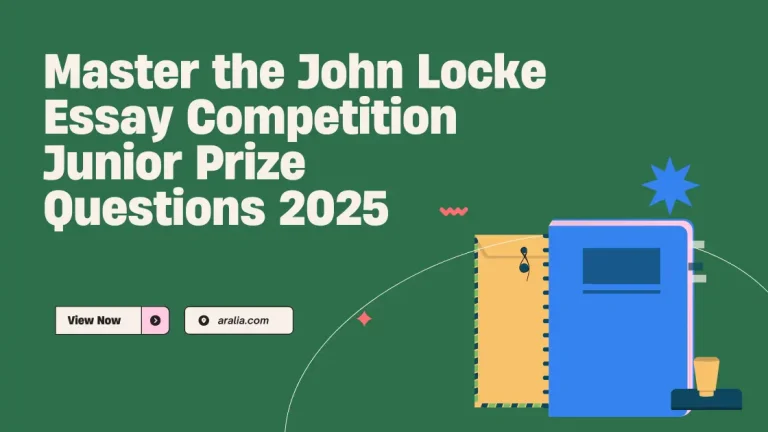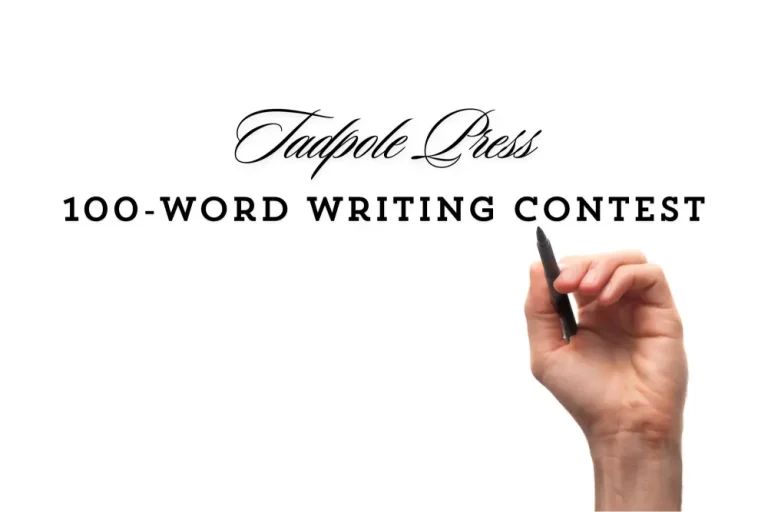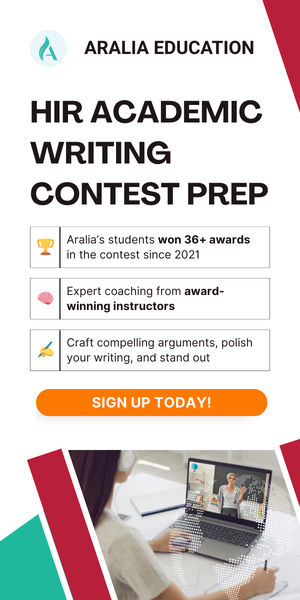Aralia Students Are 4x More Likely to Publish a Research Paper
1. What is The Concord Review?
The Concord Review, or TCR, is an academic journal dedicated to publishing historical research papers of high school students in English. Many of the authors of TCR have gone to prestigious universities and colleges across the U.S and in 38 countries worldwide, from Ivy League colleges to excellent institutions like Berkeley, Carnegie Mellon, and John Hopkins.
The Concord Review is considered the most prestigious in the high school history field, with its acceptance rate being only around 10%. Only 11 students worldwide are recognized and published in every issue, making the chance to be published more competitive than ever. With the spring issue, the quarterly journal has published 1,362 research papers from authors in 46 states and 41 countries. William R. Fitzsimmons, Harvard’s dean of admissions, considers essays published in the review “impressive.”
2. How do I submit to The Concord Review?
All essays can be about any historical topic, ancient or modern, domestic or foreign. Essay submission must be in the 4,000 – 6,000-word range (8-12 pages), with Chicago endnotes and bibliography. Students must be the sole authors, and the word must not be published elsewhere except for a publication of the secondary school the students attend. Students can submit more than one research paper.
Eligibility: Secondary students from all countries and schools can participate.
Deadline: For consideration for the Summer issue, your paper should be received by February 1, 11:59 pm EST (UTC -5).
For the Fall issue, your paper should be received by May 1, 11:59 pm EDT (UTC -4).
For the Winter issue, your paper should be received by August 1, 11:59 pm EDT (UTC -4).
For the Spring issue, your paper should be received by November 1, 11:59 pm EST (UTC -5).
Fee: Ranges from $70 – $150 depending on which type of subscription students want to sign up for.
3. What prizes are available from The Concord Review?
4. How can students get published in The Concord Review?
Read previous works by published students for reflection and inspiration
There are a couple of ways students can access published work: The Concord Review paid subscription and Newsletter subscriptions. With a paid subscription to The Concord Review, you have access to the eBook or print quarterly journal with all high school students’ published academic history research papers. The second option is the Newsletter subscription, which is free. With the second option, subscribers will have access to a limited number of published articles. Therefore, depending on your budget, you can choose the appropriate subscription and receive sample essays. You can also purchase historical research papers on Amazon.
By reading through the published historical research papers written by students, you will find patterns and understand what the judges are looking for in a historical research paper and receive perspectives on how the students approach their hypothesis and analysis on a historical issue.
Understand the structure of a historical research paper
Depending on the kind of historical research you are aiming for (narrative, analytics, etc.), there will be different depth and focus on research, analysis, and discussion. However, the primary guiding and focal point will be the thesis statement. An example of a winning essay written by a student from Mercersburg Academy is The Civil Service Examination System: A Vehicle for Social Mobility in Song China. In this essay, the writer examines the system that selected bureaucrats to China’s government for over a thousand years in Chinese history.
To come up with an appropriate thesis statement, students must do intensive research beforehand. Since The Concord Review doesn’t have a prompt, students have the freedom to choose any topic of interest to them. After selecting a topic that you’re interested in, you should do outside research. Resources for research can be found in scholarly and peer-reviewed journals, books, and internet resources. When it comes to source search and selection, we recommend that you filter and evaluate each source carefully before adding information from it to your research paper. ProQuest, Nexis Uni, Google Scholar, Search Engines, Google Books, or your school’s library are great starting places to find information.
Sources for Historical Analysis: According to Harvard University, students can use two types of sources as evidence for their analysis. Primary sources are materials produced in the time period of the study, such as diaries, correspondence, dispatches, newspaper editorials, speeches, economic data, literature, art, and film. Secondary sources are produced after the time period of the study, such as Works of Scholarship.
Draft a thesis statement: After collecting enough resources, you should start developing a thesis statement and thinking about how you want to develop your arguments. We understand that thesis writing is a hard and challenging process, but keep in mind that your thesis statement will change over time with more sources collected and deeper thinking developed.
Annotate resources: Before jumping into writing an outline and working on your first draft, we recommend that you should annotate your key sources. Annotating sources means writing a paragraph or paragraphs to summarize the source’s main idea and how you will use it in your research paper. Annotation is essential in keeping your research paper organized and helps you keep track of all the key sources used in the paper. An annotation example is:
Davidson, Hilda Ellis. Roles of the Northern Goddess. London: Routledge, 1998.
Davidson’s book provides a thorough examination of the primary roles filled by the numerous pagan goddesses of Northern Europe in everyday life, including their roles in hunting, agriculture, domestic arts like weaving, the household, and death. The author discusses relevant archaeological evidence, patterns of symbols and rituals, and previous research. The book includes a number of black and white photographs of relevant artifacts.
You can start writing your research paper after you have the thesis statement, key arguments, and key annotations. The University of California, Los Angeles has published a checklist for students after they are done with the first draft:
- Does my thesis clearly state my argument and its significance?
- Does the main argument in each body paragraph support my thesis?
- Do I have enough evidence within each body paragraph to make my point?
- Have I properly introduced, analyzed, and cited every quotation I use?
- Do my topic sentences effectively introduce the main point of each paragraph?
- Do I have transitions between paragraphs?
- Is my paper free of grammar and spelling errors?
Enhance Your Research Skills with Aralia’s Research Scholar Classes
5. The Concord Review Research Paper Example
As mentioned above, this example is Lian Wang’s research on the Civil Service Examination System: A Vehicle for Social Mobility in Song China. Her paper was published in The Concord Review, Spring 2021 Issue. We will summarize Lian’s key points and essay structures for reference. In the article, she analyzes the system that selected bureaucrats to China’s government for over a thousand years in Chinese history.
- Introduction: This section introduces the civil service examination system, which people can take to work in the government. After providing the background information, she ends the introduction with a general outline of upcoming paragraphs: development of the civil service examination system, significant reforms during the Song dynasty that contributed to the system’s success, two characteristics of the Song system. She will end the research with a discussion about the civil service examination system that fostered social mobility in Song China.
- Body paragraphs: At the beginning of a new argument, she highlights the main point she will be discussing. Those main points are History + Overview of the Song System + Measures to Address Corruption and Cheating + The School System + Social Outcome of Success in the Examinations.
- Conclusion: She concludes the research paper by synthesizing the main points that led to the Song system’s success in increasing the fairness of the civil service examination and its availability to commoners.
The Concord Review is a prestigious academic journal for students aspiring to be a historian and work in a history-related field. We hope this guide to The Concord review gives you an overview and step-by-step guide to complete your first historical research paper for submission. Aralia’s Historical Research class is the suitable class for you if you prefer receiving guidance while developing your research paper.
6. The National Writing Board
In addition to the competition, The Concord Review also has the National Writing Board, an assessment service for the history research papers of high school students. Papers can be submitted in two categories: Short papers from 1,500 to 2,500 words, and long papers from 4,000 to 6,000 words.
Students who are interested in receiving assessments and evaluations for their historical research paper can contact The Concord Review at gitzhugh@tcr.org. The submissions will be reviewed by two senior secondary instructors, and a three to four-page report will be sent to the author. The evaluation can also be sent to college admission officers to add to the information of applicants. The National Writing Board has been endorsed by the following 39 colleges:
Amherst, Boston University, Bowdoin, Carnegie Mellon, Claremont McKenna, Colgate, Connecticut College, Cooper Union, Dartmouth, Duke, Eckerd, Emory, George Mason, Georgetown, Hamilton, Harvard, Haverford, Illinois Wesleyan, Lafayette, Lehigh, Michigan, Middlebury, Northwestern, Notre Dame, Pitzer, Princeton, Reed, Richmond, Sarah Lawrence, Shimer, Smith, Spelman, Stanford, Trinity (CT), Tufts, the University of Virginia, Washington and Lee, Williams, and Yale.
The fee for evaluation is $3000.
Students who receive the evaluation will have a score range from 1 to 6 (or F to A). The same report can be found here.
Score Distribution 2000-2011, provided by the Concord Review:

Further reading:
Aralia's Courses
The Concord Review Prep (TCR)
The Concord Review Prep invites an outstanding teacher who has served as a writing tutor for The Concord Review for many years. Students will have one-on-one sessions with the teacher to prepare for their essays. Contact us for more information about the course!













